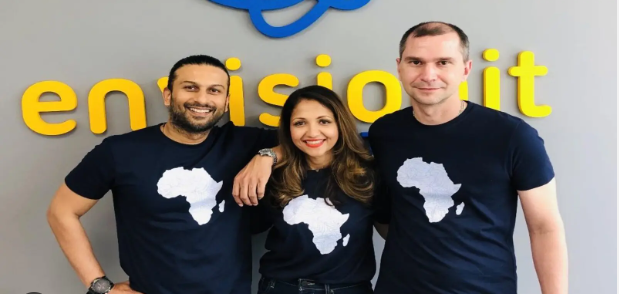Envisionit Deep AI, a South African e-health startup that leverages artificial intelligence to transcend the diagnostic imaging gap, has raised US$1.65 million in funding to expand its services further, which blends artificial intelligence with radiology to diagnose illnesses.
The funding will serve as a means to propel the company into its next phase of expansion, with the goal of addressing significant shortages in the African and developing market healthcare sectors and democratizing access to diagnostic imaging via the use of artificial intelligence (AI).
The US$1.65 million funding comes from New GX Ventures SA, with an additional undisclosed amount from the GIIG Africa Fund after Envisionit Deep AI was voted a Southern Africa regional winner at the African Startup Awards. With the funding, the startup aims to address significant shortages in the African and developing market healthcare sectors and democratize access to diagnostic imaging via AI. The startup’s solutions may be integrated with technologies such as X-ray machines for point-of-care diagnosis and treatment, as well as teleradiology for patients who need radiology reports.
Read also: Egyptian e-health Startup, ‘CheckMe’ Buys ‘DoctorOnline’
What to expect from Envisionit Deep AI’s new funding
The CEO of the healthcare startup, Jaishree Naidoo, said, “Typically, a radiographer takes X-rays, then patients return home and receive the findings later, often after many months. Diseases may grow worse if the diagnosis is delayed. We are removing that gap because when you know what to treat, you treat it promptly, adding their confidence about delivering its solutions to South Africa’s mining industry, where personnel are prone to TB contamination.
“There is a great need for healthcare services in Africa, notably in the area of medical diagnostics. Naidoo claims that in 2022 alone, they screened and triaged 64,351 people. Among them were 1,635 instances of TB and 44,529 cases of pneumonia. Unfortunately, this is just the tip of the iceberg; the existing system cannot meet the tremendous need and demand,” he remarked.
“As a clinician and CEO, I’ve seen firsthand how innovation presents a positive-sum scenario, where advanced technology makes it easier for doctors to provide quality care at scale, offers deeper insights into how to treat patients better, and in the long run, improves the feasibility of both healthcare facilities and the systems they operate in. With the need for healthcare services only expected to rise, now is the moment for decision-makers to consider how technology may help them fulfil today’s requirements while also better preparing for tomorrow’s.”
According to the startup, although the amount of data it processes is critical, it guarantees that its models are trained using quality de-identified data collected internationally and from varied ethnic groups. Radiologists may also validate the data using a validation tool, which ensures that the system is working properly. By soliciting their thoughts and input, the company improved the model’s accuracy.
Envisionit Deep AI, founded in 2019 by Dr Jaishree Naidoo, Andrei Migatchev, and Terence Naidu, creates revolutionary medical solutions that use AI to improve how healthcare professionals diagnose and treat patients. The firm is enhancing the speed, accuracy, quality, and cost of medical imaging diagnosis with products such as their RADIFY AI technology, which is critical in the early identification and treatment of illnesses such as TB, coronavirus pneumonia, and breast cancer, among others.
The company is assisting in the resolution of crucial personnel and resource shortages, mostly in public healthcare systems and underserved populations around Africa, where investment in the sector is among the lowest in the world.
